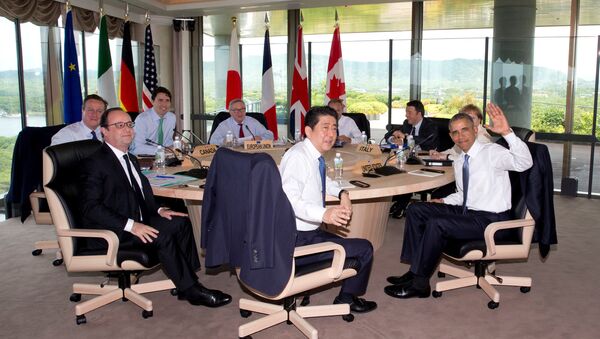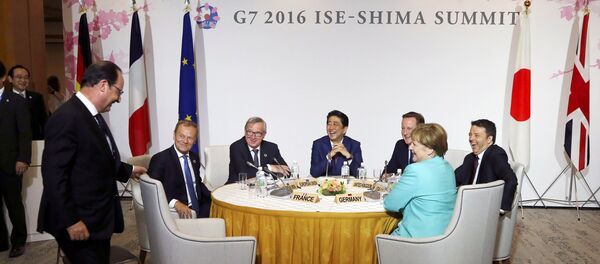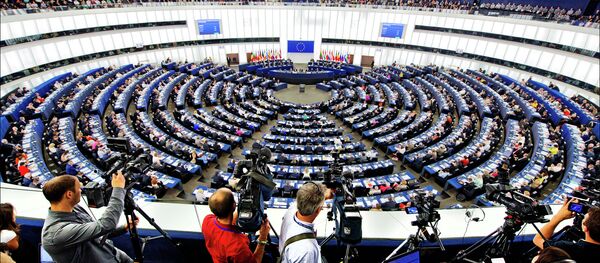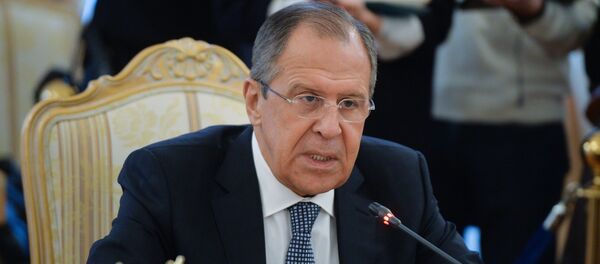IS-SHIMA (Japan) (Sputnik) – The G7 has decided it will extend sanctions against Russia in June, British Prime Minister David Cameron said Friday.
“On Russia, the G7 has agreed on the vital importance of sanctions rollover in June. Ukraine is the victim of Russian-backed aggression. We must never forget that fact. And the G7 is clear that existing sanctions must remain in place until the Minsk agreement is fully implemented. I believe that is an important decision,” Cameron said at a press conference after the G7 Summit in Japan.
"We stand united in our conviction that the conflict in Ukraine can only be solved by diplomatic means and in full respect for international law, especially the legal obligation to respect Ukraine’s sovereignty, territorial integrity and independence. We reiterate our condemnation of the illegal annexation of the Crimean peninsula by Russia and reaffirm our policy of its non-recognition and sanctions against those involved," the G7 leaders said.
"We recall that the duration of sanctions is clearly linked to Russia’s complete implementation of the Minsk agreements and respect for Ukraine’s sovereignty. Sanctions can be rolled back when Russia meets these commitments. However, we also stand ready to take further restrictive measures in order to increase cost on Russia should its actions so require," the G7 leaders stressed.
They pointed out, however, that maintaining dialogue with Russia is crucial to the resolution of the internal crisis in Ukraine.
“As for the future of these restrictions, this question should be directed to those who initiated the sanctions spiral. We have not and will not discuss any conditions or criteria for lifting these restrictive measures,” Lavrov told Hungary’s Magyar Nemzet newspaper.
“The European Union has linked this to Russia fulfilling the Minsk agreements,” the minister said. “Such a connection is absurd, because our country, as is well known, is not party to the conflict in Ukraine. Such a stance only encourages Kiev to sabotage the Minsk measures without any consequences.”
The United States, the EU and some of their allies have imposed several rounds of sanctions targeting key sectors of the Russian economy, as well as a number of individuals and entities, over Crimea’s reunification with Russia and Moscow's alleged interference in the conflict between Kiev and independence militia in eastern Ukraine.
Russia has repeatedly refuted the allegations, warning that the Western sanctions are counterproductive. In response to the restrictive measures, Russia has imposed a food embargo on some products originating in countries that have targeted it with sanctions.
The latest round of Western punitive measures against Russia is up for extension among EU members before the July 31 expiration deadline.




